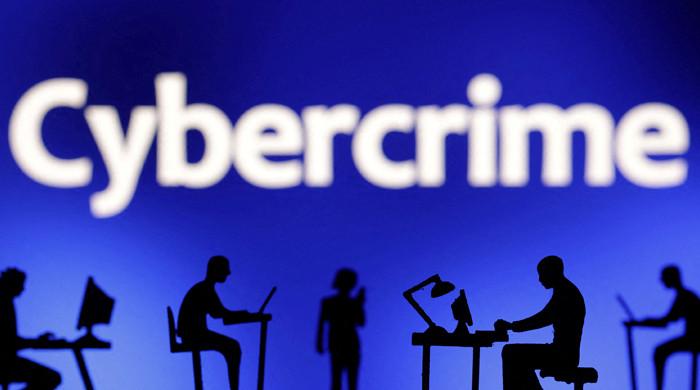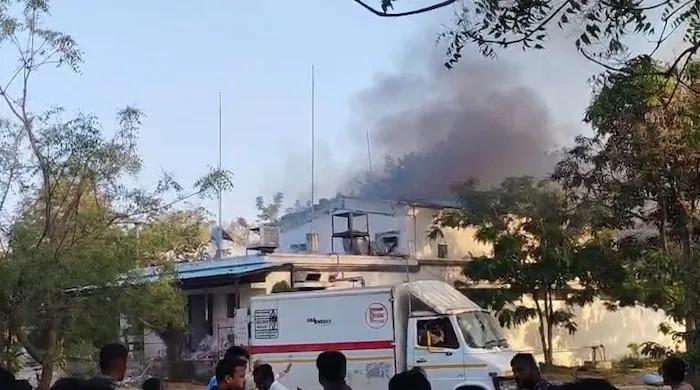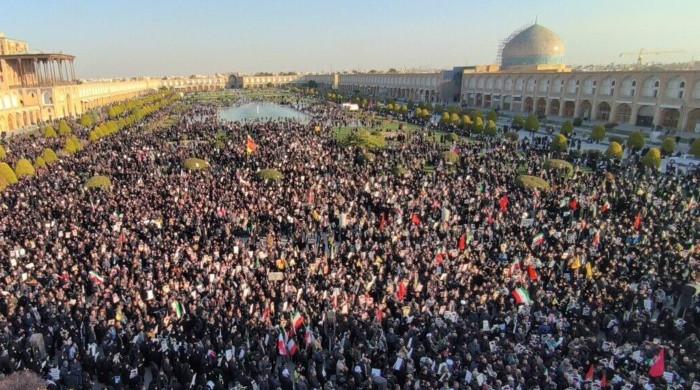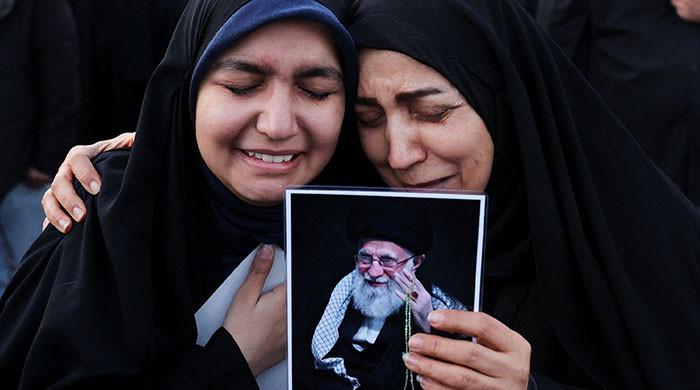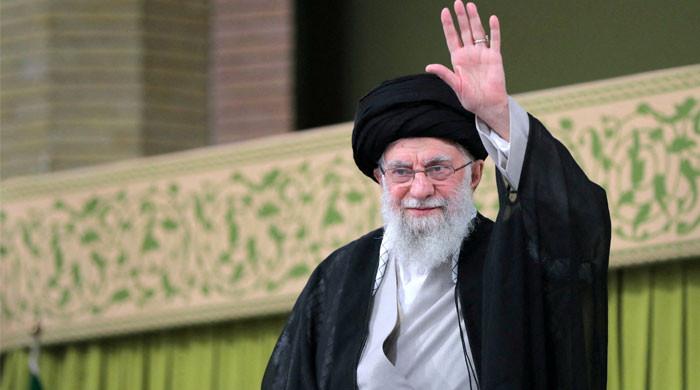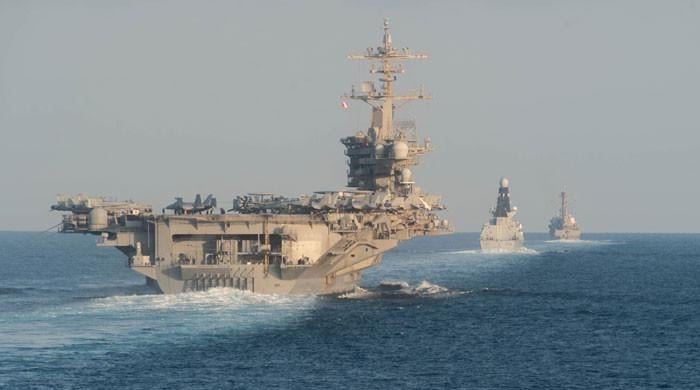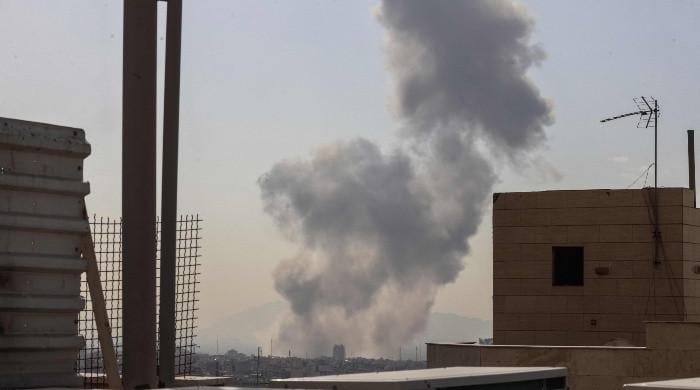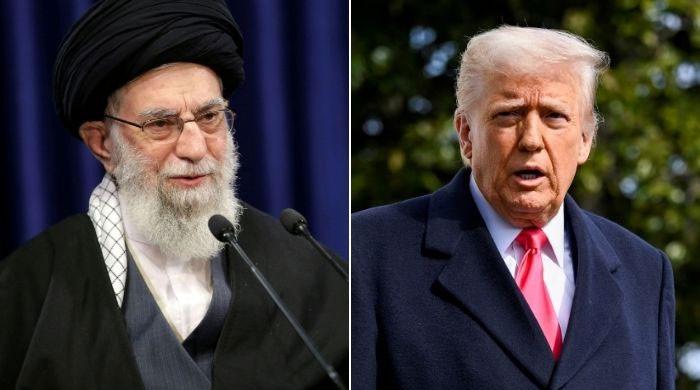US, allies unveil nuclear-powered submarine plan for Australia to counter China ambitions
Britain to take delivery of its first SSN-AUKUS submarine in the late 2030s and Australia in early 2040s
March 14, 2023
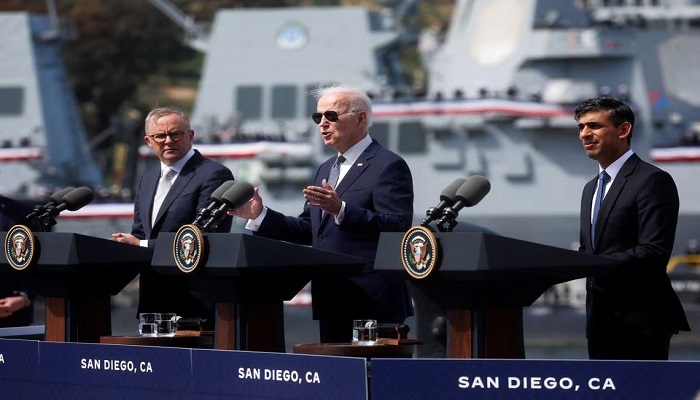
- First phase to see Australia buying US subs in early 2030s.
- Australia to receive new SSN-AUKUS class of subs in 2040s.
- Project to cost Australia $245 billion by 2055: defense official
The United States, Australia and Britain unveiled details of a plan to provide Australia with nuclear-powered attack submarines from the early 2030s to counter China's ambitions in the Indo-Pacific.
Addressing a ceremony at the US naval base on Monday in San Diego, accompanied by Australian Prime Minister Anthony Albanese and British Prime Minister Rishi Sunak, US President Joe Biden called the agreement under the 2021 AUKUS partnership part of a shared commitment to a free-and-open Indo-Pacific region with two of America's "most stalwart and capable allies."
Sunak called it "a powerful partnership," adding: "For the first time ever it will mean three fleets of submarines working together across the Atlantic and Pacific keeping our oceans free ... for decades to come."
Under the deal, which was welcomed by its Asian allies on Tuesday but has angered Beijing, the United States intends to sell Australia three US Virginia class nuclear-powered submarines, which are built by General Dynamics, in the early 2030s, with an option for Australia to buy two more if needed, a joint statement said.
It said the multi-stage project would culminate with British and Australian production and operation of a new submarine class - SSN-AUKUS - a "trilaterally developed" vessel based on Britain's next-generation design that would be built in Britain and Australia and include "cutting edge" US technologies.
Britain would take delivery of its first SSN-AUKUS submarine in the late 2030s, and Australia would receive its first in the early 2040s. The vessels will be built by BAE Systems and Rolls-Royce.
"The AUKUS agreement we confirm here in San Diego represents the biggest single investment in Australia’s defence capability in our history, strengthening Australia’s national security and stability in our region," Albanese said at the ceremony.
AUKUS will be the first time Washington has shared nuclear-propulsion technology since it did so with Britain in the 1950s.
Biden stressed that the submarines would be nuclear-powered, not nuclear-armed: "These boats will not have nuclear weapons of any kind on them," he said.
But the deal comes with an eye-watering bill for Australia with cost estimated to go up to A$368 billion ($245 billion) by 2055.
Albanese defended the spending, saying it was "an economic plan, not just a defence and security plan".
He said he expected AUKUS would result in A$6 billion invested in Australia’s industrial capability over the next four years and create about 20,000 direct jobs over the next 30. He said it would require funding amounting to about 0.15% of GDP per year.
Australia's defence minister, Richard Marles, said it was an investment in the nation's security.
"It is an investment that we cannot afford not to make," Marles told a news conference in Canberra.
China has condemned AUKUS as an illegal act of nuclear proliferation. The plan "constitutes serious nuclear proliferation risks, undermines international non-proliferation system, fuels arms races, and hurts peace and stability," China's permanent mission to the United Nations said in a tweet after the announcement.
Asked if he was worried China would see the AUKUS submarine deal as aggression, Biden replied "no." He said he expected to speak to Chinese leader Xi Jinping soon, but would not say when.
US national security adviser Jake Sullivan pointed on Friday to Beijing's own military buildup, including nuclear-powered submarines, saying: "We have communicated with them about AUKUS and sought more information from them about their intentions."
Australia offered China a briefing on the submarine deal, Australian Defence Minister Richard Marles said.
In launching the partnership, Australia also upset France by abruptly cancelling a deal to buy French conventional submarines.
The agreement will see US and British submarines deployed in Western Australia as soon as 2027 to help train Australian crews and bolster deterrence. US officials said this would involve four US submarines and one British in a few years.
This first phase of the plan is already underway with the US Virginia-class nuclear-powered attack submarine Asheville visiting Perth in Western Australia, officials said.
Big questions and huge investment
The US assistant secretary of state for East Asian and Pacific affairs, Daniel Kritenbrink, said in a media briefing on Tuesday that the US had informed its partners in South East Asia about the AUKUS plan, including in Indonesia and Malaysia, last week "to explain clearly what AUKUS is and what AUKUS is not".
A senior US official said AUKUS reflected mounting Indo-Pacific threats, not just from China towards self-ruled Taiwan and in the contested South China Sea, but also from Russia, which has conducted joint exercises with China, and North Korea as well.
Taiwan's foreign ministry welcomed the deal, saying it would help combat "authoritarian expansion" in the region.
"The cooperation between the three parties will strengthen the deterrence capabilities of democratic countries in the Indo-Pacific region and help maintain regional peace and stability," it said in a statement.
Albanese called Japan Prime Minister Fumio Kishida on Tuesday to brief him on the launch, with Kishida saying the deal "will contribute to regional peace and stability, and that Japan has consistently supported this initiative," his foreign ministry said in a statement.
Big questions remain about AUKUS, not least over strict US curbs on the extensive technology sharing needed for the project and about how long it will take to deliver the submarines, even as the perceived threat posed by China mounts.
In a reflection of stretched US production capacity, a second senior US official told Reuters it was "very likely" one or two of the Virginia-class submarines sold to Australia would be vessels that had been in US service, something that would require congressional approval.
Analysts said that given China's growing power and threats to take Taiwan by force if necessary, it was vital to advance the second stage of AUKUS, which involves hypersonics and other weaponry that can be deployed more quickly.
British and Australian officials said this month work was still needed to break down bureaucratic barriers to technology sharing and Monday's announcement did not cover this second stage.
The second US official said Australia would contribute to boosting US and British submarine production and maintenance capacity.
He said Washington was looking at a "double-digit billion" investment in its submarine industrial base on top of $4.6 billion already committed for 2023-29 and that the Australian contribution would be less than 15% of the total.
Britain, which left the European Union in 2020, says AUKUS will help boost its economy's low growth rate. Sunak said AUKUS was "binding ties to our closest allies and delivering security, new technology and economic advantage at home."




